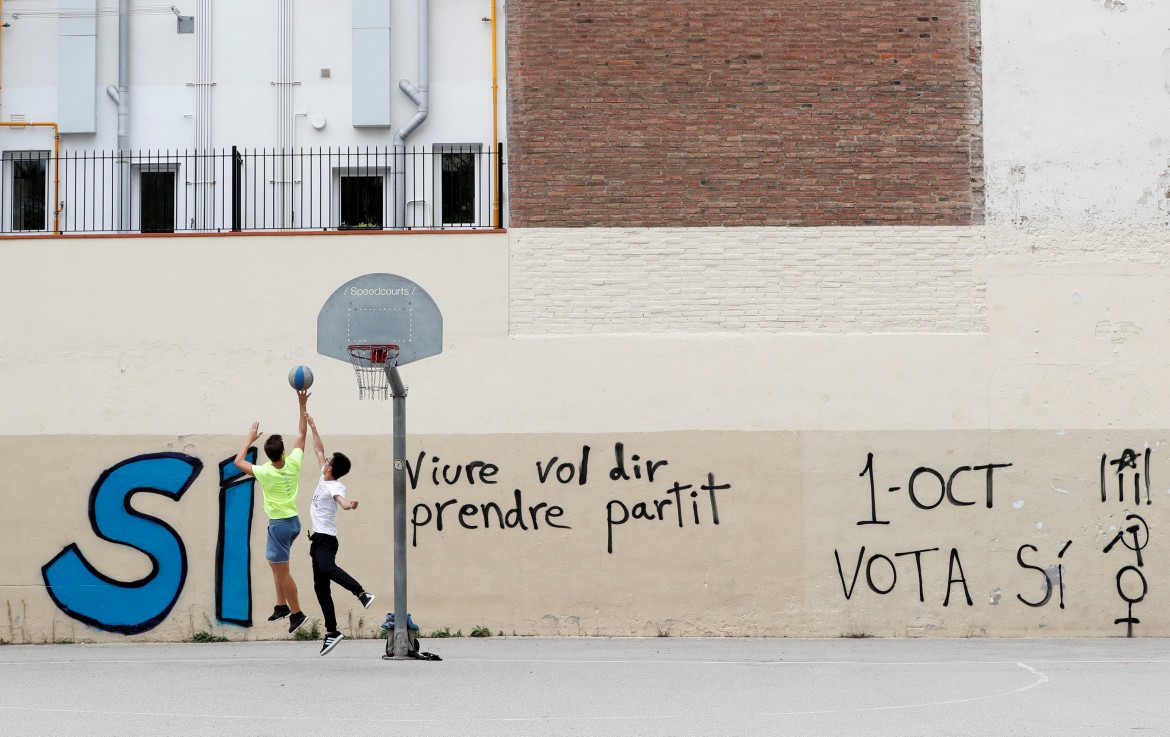Analysis
Catalan epilogue could be tragic
Historical facts should have pushed the Rajoy government to show more wisdom. By the same standard, Barcelona should have shown greater realism.

Starting Saturday, and barring any last-minute developments, the Catalan crisis could accelerate dramatically. A specially convened Council of Ministers will decide to invoke Article 115 of the Constitution, which returns all the powers delegated to a regional government, from political to administrative, to the central government.
With such an exceptional measure taking effect, anything might be possible: arrest warrants for the Catalan leaders, an economic blockade on government spending or sending in the army to oversee local institutions.
In response, Barcelona is threatening to declare its independence in the coming hours. The Ciudadanos and PSOE have rallied behind the government’s position (the Socialists supporting the executive with their abstention), perhaps auguring a reshuffle of the majority.
A less impolitic, and not purely repressive, management of the Catalan conflict by the Madrid government would have been much more effective in isolating the most radical separatist impulses, which now feel entitled to up the ante. At the same time, a greater sense of institutional responsibility on the part of Barcelona would have avoided bringing the situation to the breaking point, on the brink of which came Rajoy’s hardline reaction: “Either you explain whether you have declared independence and what you mean by ‘discussions,’ or Article 115 of the Constitution will enter into force.”
Carles Puigdemont, president of the Autonomous Government of Catalonia, remained vague in his reply, asking for two months of negotiations and a meeting with Rajoy in short order. It was neither a confirmation of a unilateral declaration of independence, nor a step back.
The government in Madrid is now trying to take advantage of the most obvious contradiction of the government in Barcelona: the paradoxical pact to support independence between the extreme left (Esquerra Republicana, CUP) and right-leaning moderates (the Catalan European Democratic Party, heirs of the center-right nationalists of the Democratic Convergence of Catalonia).
The moderates are hesitant to declare unilateral independence in the absence of international recognition from the European Union (which remains cautious, while supporting Madrid) and economic solutions for managing a possible transition period required by the start of the independence process. Brussels fears a contagion effect (Scotland, Ireland, Basque Country, etc.), while Rajoy is pushing forward against the contradiction inherent in the Catalan government’s coalition to call for early elections, whose outcome would be highly uncertain.
At the beginning of the 1990s, the situation was quite different. The push for independence had been gradually dying out because of the region’s increasing autonomy in areas ranging from the recognition of Catalan and Basque as spoken languages to their teaching in schools, in addition to providing special statuses for both regions. The return of the Right to government with Josè Maria Aznar (1996-2004) dusted off the old attitude of hostility toward autonomy, awakening the push for independence as a result.
When the Socialists of José Luis Rodríguez Zapatero returned to government (2004), they approved a law in 2006 that expanded Catalonia’s autonomy. This law, which passed by large majorities both in the Spanish Parliament and the regional one in Barcelona, was also ratified by a referendum in 2006, demonstrating its broad democratic legitimacy. The Right, however, made an appeal to the Constitutional Court against the newly approved legislation. The Court granted the appeal in part, striking down parts of the Catalan statute and thereby triggering the resurgence of the push for independence, fueled by the concomitant economic crisis.
These historical facts should have pushed the Rajoy government to show more wisdom. By the same standard, Barcelona should have shown greater realism, taking into account that the pro-independence parties had picked up only 45 percent of the votes in the 2014 elections.
At this point, the conclusion of the Catalan affair may be a tragic one. After all, one could not seriously think it would be possible to declare independence from a democratic European state merely by passing for themselves a special law that allowed a referendum and then pushing on with their position up to the breaking point. Nor would one expect the other side to answer with nothing but police and repression to the task of reducing the impact of the referendum of Oct. 1.
However, to equate “independence” to a new progressive state in the form of a republic, or to speak in simple terms of a “Catalan Revolution,” remain hasty propositions. The prudence shown and the warnings raised by Podemos should make one think. Beware of blunders. We must never stop invoking political solutions and dialogue in order to build a new institutional shape for the Spanish state, refraining from both the path of repression and that of unilateral solutions.
Originally published at https://ilmanifesto.it/attenzione-agli-abbagli-la-risposta-e-politica/ on 2017-10-20
